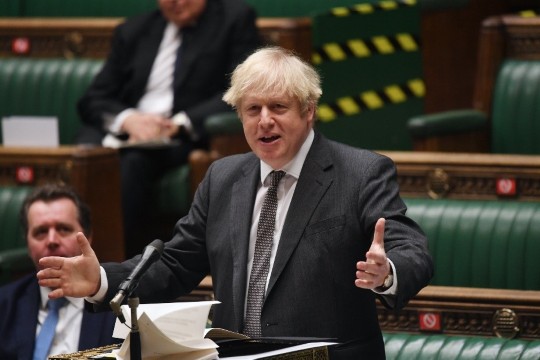Brexit Legislation

A significant amount of primary and secondary legislation is required to deal with Brexit and ensure the functioning of the Windsor Framework. Primary legislation is made by Acts of Parliament. Secondary legislation, also called ‘delegated legislation’, is made by Ministers under powers given to them in primary legislation. Primary legislation can be described as the framework for a policy, while secondary legislation provides the detail within that framework.
The following is a list of EU exit-related primary legislation, grouped by category. Acts have been made, while Bills are progressing through the UK Parliament scrutiny process.
Legislation to implement the Brexit agreements with the EU
- The EU (Future Relationship) Act 2020 gave legal effect to the EU-UK Trade and Cooperation Agreement.
- The European Union (Withdrawal Agreement) Act 2020 gave legal effect to the provisions of the EU-UK Withdrawal Agreement (including the Protocol on Ireland/Northern Ireland).
Post-Brexit legislative reform
- The European Union (Withdrawal) Act 2018, also known as the ‘Repeal Bill’ was passed in 2018 and as of 31st January 2020 repealed the European Communities Act of 1972, ending the primacy of EU law in the UK. It converted EU law into domestic law – this was important to ensure some continuity and certainty in areas previously covered by EU law.
- The Retained EU Law (Revocation and Reform) Act 2023 contains a “sunset” clause with a list of almost 600 pieces of Retained EU Law (REUL) which were repealed at the end of 2023. The Act gives Ministers powers to amend, revoke and replace REUL more easily. It also ends the supremacy of REUL and removes the established principles by which REUL has been interpreted to-date. More on Retained EU Law and the REUL Act.
- Data Protection and Digital Information Bill
- Procurement Act 2023
- Financial Services and Markets Act 2023
- Genetic Technology (Precision Breeding) Act 2023
- Trade (Australia and New Zealand) Act 2023
- Nationality and Borders Act 2022
- Professional Qualifications Act 2022
- Subsidy Control Act 2022
- Environment Act 2021
- Financial Services Act 2021
- Medicines and Medical Devices Act 2021
- Trade Act 2021
- Internal Market Act 2020
- Private International Law (Implementation of Agreements) Act 2020
- Fisheries Act 2020
- Agriculture Act 2020
- Immigration and Social Security Co-ordination (EU Withdrawal) Act 2020
- Extradition (Provisional Arrest) Act 2020
- Direct Payments to Farmers (Legislative Continuity) Act 2020
- Healthcare (European Economic Area and Switzerland Arrangements) Act 2019
- Taxation (Cross-border Trade) Act 2018
- Haulage Permits and Trailer Registration Act 2018
- Nuclear Safeguards Act 2018
- Sanctions and Anti-Money Laundering Act 2018
Legislation to implement the Windsor Framework
The UK Government has introduced a series of Statutory Instruments to implement elements of the Windsor Framework, including the Stormont Brake. Our webpage on the Windsor Framework details this secondary legislation.
Legislative consent
According to the Sewel Convention, when the UK Parliament is legislating on matters within the devolved competence of the administrations of Northern Ireland, Wales, and Scotland, the Government should “not normally” do so without the consent of the devolved administration. The devolved administrations can indicate their consent for Westminster to legislate on a devolved matter by agreeing a legislative consent motion (LCM). You can find details of the LCMs which the Assembly has considered in relation to Brexit by following this link. Ultimately, the principle of parliamentary sovereignty means that Westminster has the power to legislate on any matter, whether devolved or not.
Secondary legislation
SIs are the most common type of secondary legislation. UK statutory instruments will make most regulatory and legislative changes related to Brexit. Scrutiny of SIs is a matter for the UK Parliament.
Departments in the Northern Ireland Executive also have powers to bring forward secondary legislation in the form of Statutory Rules. These rules are made in accordance with powers granted in the ‘parent’ or primary legislation. Northern Ireland Assembly Committees undertake scrutiny of this secondary legislation. Read the details of the Brexit-related Statutory Rules passed by the Assembly. If you want to learn more about Statutory Rules, a useful FAQ can be found here.



